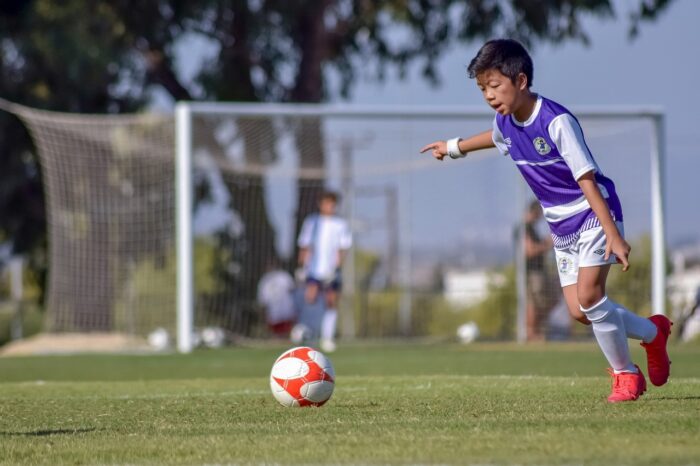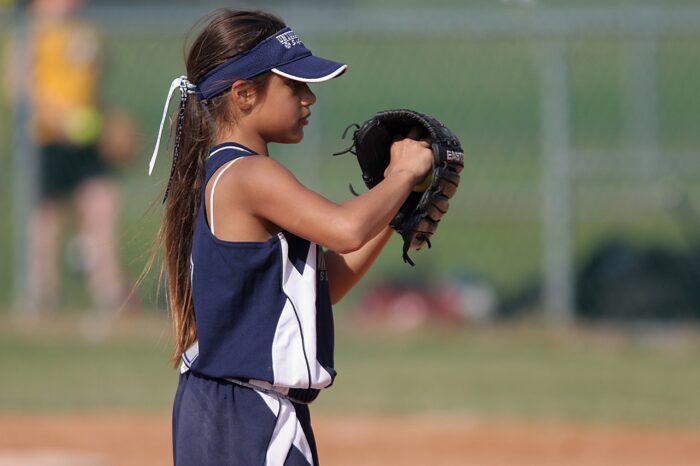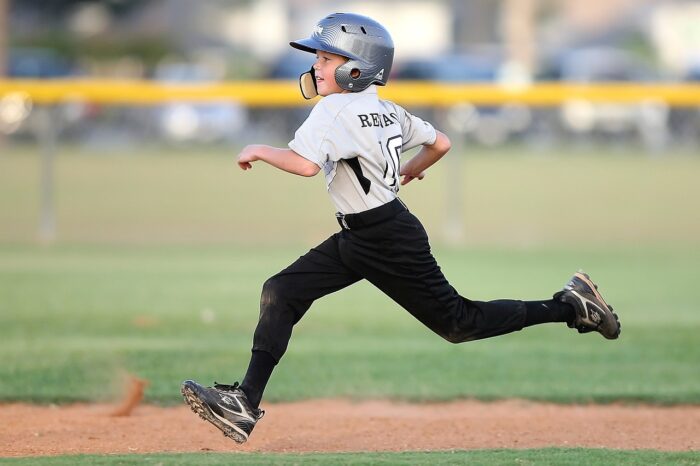*This article may contain product links which pay me a small commission if you make a purchase. Learn more.
Youth sports can be a rewarding and transformative experience for children. Engaging in sports not only promotes physical fitness but also instills important life skills such as teamwork, discipline, and perseverance. While parents play a crucial role in supporting their young athletes, there are common sports parenting mistakes that can hinder a child’s development and enjoyment of the game. In this article, we will explore these mistakes and provide guidance on how to avoid them, ensuring that parents can be a positive influence on their children’s sports journey.
Sports Parenting Mistake #1: Unrealistic Expectations
One of the most prevalent mistakes parents make in youth sports is having unrealistic expectations for their children’s performance. Parents may harbor dreams of their child becoming the next sports superstar, putting undue pressure on the young athlete to excel. This kind of pressure can lead to anxiety, burnout, and a loss of love for the game.
Solution: Parents should set realistic goals for their children and emphasize the importance of personal improvement and enjoyment over winning. Encourage your child to focus on their effort and progress rather than solely on outcomes.
#2: Living Vicariously Through Their Children
Some parents see their children’s sporting endeavors as an opportunity to fulfill their own unmet athletic aspirations. They may push their kids into sports they themselves love, often without considering their child’s interests or abilities.

Solution: Let kids sample & explore interests
It’s crucial for parents to support their children’s choices and let them sample various sports. Remember – these are hobbies, not future tracks to stardom. Though some kids will grow up into collegiate or pro athletes, the reality is that 99% will not turn pro. Parents shouldn’t impose their own preferences. Encourage your child to discover their passion and talents independently.
Sport sampling is especially important for kids below age 13. You never know – they might be uninterested and unskilled at tennis, for example, but love and become incredible at basketball. Give them a chance to try things out and see what happens!
#3: Overemphasis on Winning
Although winning is a part of sports, overly prioritizing it can lead to a toxic sports environment.
Parents who place too much importance on winning may inadvertently signal to their kids that they don’t matter – or are not loved – if they don’t perform well and WIN WIN WIN!
Solution: Focus on “mattering”
Parents should emphasize the values of fair play, sportsmanship, hard work and effort over winning. Teach your child that success in sports is not solely determined by the final score but also by their character and personal growth.

And, be sure to reinforce mattering – show your kid that you love and they matter to you no matter how many mistakes they made or how poorly the team performed. Sports are hobbies, not jobs or career paths, and are meant to give kids a fun diversion from the hardships of life. As long as they’re having fun, respecting others and doing their best, they should be encouraged.
#4. Excessive criticism and negativity
Constantly criticizing and highlighting mistakes can erode a child’s self-esteem and motivation. Parents who are overly critical can create an environment where the child becomes fearful of failure and loses confidence.
And, when it feels like nothing they do is every right, or is ever “enough”…kids will quit sports. And find something more fun to do.
Solution: Be a cheerleader first and praise effort.
Instead of focusing on mistakes, parents should offer constructive feedback and praise effort. Encourage your child to learn from their errors and view them as opportunities for growth.
#5. Abusive Behavior From the Bleachers
It’s natural for parents to become emotionally invested in their child’s sports activities.
However, displaying extreme emotions such as anger, frustration, or disappointment during games can be harmful. It can make the child anxious, embarrassed, or resentful. Sports referees and umpires are quitting at record rates because of abusive parents.
Solution: Treat games like a recital
Parents should strive to maintain emotional composure during games. Focus on being a positive and supportive presence, regardless of the outcome. Save discussions about performance for a more appropriate time and place.
It’s a good rule of thumb to act like games and competitions are like recitals – where you wouldn’t dare coach a kid during their violin performance from your seats, or shout negative things if someone screwed up. Keep it encouraging, and keep it fun!
#6. Overloading schedules
Some parents fill their child’s schedule with an overwhelming number of sports activities, leaving little time for relaxation, academics, and other important aspects of childhood. This can lead to physical and emotional burnout.
Solution: Give consistent breaks from sports and communicate!
Prioritize a balanced schedule that allows time for school, sports, rest, and other interests. Encourage your child to have downtime to relax and recharge. This may mean seasonal breaks from sports or just a simple reduction in the amount of practice sessions per week.

Year-round sports are found, through significant research, to be harmful on multiple levels.
Communication between you and your child will solve a lot of these issues – ask them how much is too much. Watch their body language and say no sometimes when you believe their schedule may get too crazy. Even if your kid wants to play year-round, it’s a parent’s duty to step in.
#7. Comparing Their Child to Others
Comparing a child to their peers or even siblings can be demotivating and damaging to their self-esteem. Every child develops at their own pace, and comparing them to others only fosters insecurity.
Solution: Focus on your own family’s sports journey
Avoid making comparisons and instead focus on your child’s individual progress. Celebrate their unique strengths and achievements. Social media is a mainstream problem that causes more harmful comparison, so consider ways to minimize social media use.
#8. Pressure to Specialize Too Early
Some parents push their children to specialize in a single sport at a very young age, believing that early specialization will lead to success. However, this can increase the risk of overuse injuries and limit the child’s overall athletic development.
Solution: Don’t worry about missing out; focus on happiness TODAY
Early specialization often comes from parents who are afraid of their kids being left behind and missing out. The truth is that success at young ages are not predictive of success at older ages, as shown through recent research.

Encourage your child to participate in multiple sports and activities to develop a broad range of skills. Specialization can come later if the child shows a strong interest and aptitude for a particular sport.
#9. Being the “Helicopter Parent”
Parents who micromanage their child’s sports experience can hinder their personal growth and decision-making skills. It’s crucial to allow children to take ownership of their sports journey.
Solution: Back off and let your kid take the reigns
Empower your child to make decisions about their sports involvement, such as choosing their activities and setting their goals. Provide guidance and support, but let them take the lead.
If you want your children to grow up, through sports, to become healthy, independent adults, they they need to do things for themselves (within reason) as young adults. Let them.
#10. Chasing scholarships & projecting stardom
Only about 2% of high school athletes will be awarded any kind of athletic scholarship, according to the NFHS. The odds of getting a large enough scholarship to off-set the significant spending ($2000-$5000 per year in many cases) of travel and club sports, is even slimmer.
And, even before the scholarship, parents often project grand visions of future success and stardom. This sets unrealistic expectations and can lead to the sport being approached like a job – to ensure those big visions become reality. This is a trap parents set for themselves.
Solution: Keep FUN as the goal & stay present
Fun is the goal. If your kid enjoys playing, is meeting new friends and being challenged physically and mentally, then sports are doing their magical work. A scholarship, possible for a slim minority of athletes, is just a nice cherry on top of the sundae.
Conclusion – What Does Healthy Sports Parenting Look Like?
Parenting in the world of youth sports is a delicate balancing act.
Though it’s natural for parents to want the best for their children, avoiding these common sports parenting mistakes is essential for ensuring a positive and fulfilling experience.
By setting realistic expectations, emphasizing values, and providing unwavering support, parents can help their children thrive in sports while also developing valuable life skills that will benefit them far beyond the playing field.
Remember, the ultimate goal is not just to raise successful athletes but well-rounded individuals who are confident, resilient, and equipped for the challenges of life.
